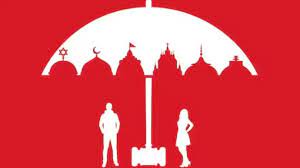


Since the 22nd Law Commission has sought suggestions for Uniform Civil Code (UCC) from all religions, communities, castes, and classes, there has been a growing concern that the Modi government at the Centre is planning to target a particular community through UCC.
In reality, the Uniform Civil Code being introduced by the Central government is not a new law but is already present under Part 4, Article 44 of the Indian Constitution. The only difference is that until now, this article had not been implemented.
Furthermore, if a Uniform Civil Code is introduced, it will not only impact a particular religious community but will also affect Hindus and Hindu tribals. For example, if a Uniform Civil Code is implemented, existing laws such as the Hindu Marriage Act (1955) and the Hindu Succession Act (1956) would need to be amended.
Section 2(2) of the Hindu Marriage Act states that its provisions will not apply to scheduled tribes. Sections 5(5) and 7 of the law state that customary practices will prevail. But what will happen to these provisions after the UCC is implemented? In addition, questions will also arise regarding the various customs and traditions related to marriage among Hindus. What will happen to these traditions after the implementation of the UCC?
Some experts believe that states like Madhya Pradesh, Chhattisgarh, Rajasthan, Uttar Pradesh, Himachal Pradesh, and the northeastern regions where there are tribal communities will be affected. It has also been noted that many of them have similar practices and traditions, which the UCC could impact. Tribals have their own rules and follow their traditional customs. Their lives are governed by their customs. If a Uniform Civil Code is imposed, what will happen to their traditional customs?
More than 30 tribal organisations in Jharkhand have decided to demand the withdrawal of the proposal for the Uniform Civil Code before the Law Commission. These tribal organisations believe that the identity of tribals could be endangered due to the UCC. If the UCC is introduced, what will happen to laws such as the Chota Nagpur Tenancy Act and the Santhal Pargana Tenancy Act that protect tribal rights? These laws provide security for the land of tribals. There are several other traditional laws prevalent among Hindu tribals related to marriage and divorce. These laws have their own rules, which have not been documented yet. What will be the impact on their lands and properties after the implementation of the UCC? Some tribals have communal property rather than individual property, and there are concerns even regarding this under the UCC. In conclusion, it can be said that the Uniform Civil Code is not targeting any specific religion, caste, or community, but aims to bring uniformity in personal laws across the country. However, it is essential to consider the concerns and interests of all communities, including tribals and various religious groups, while implementing such a code.